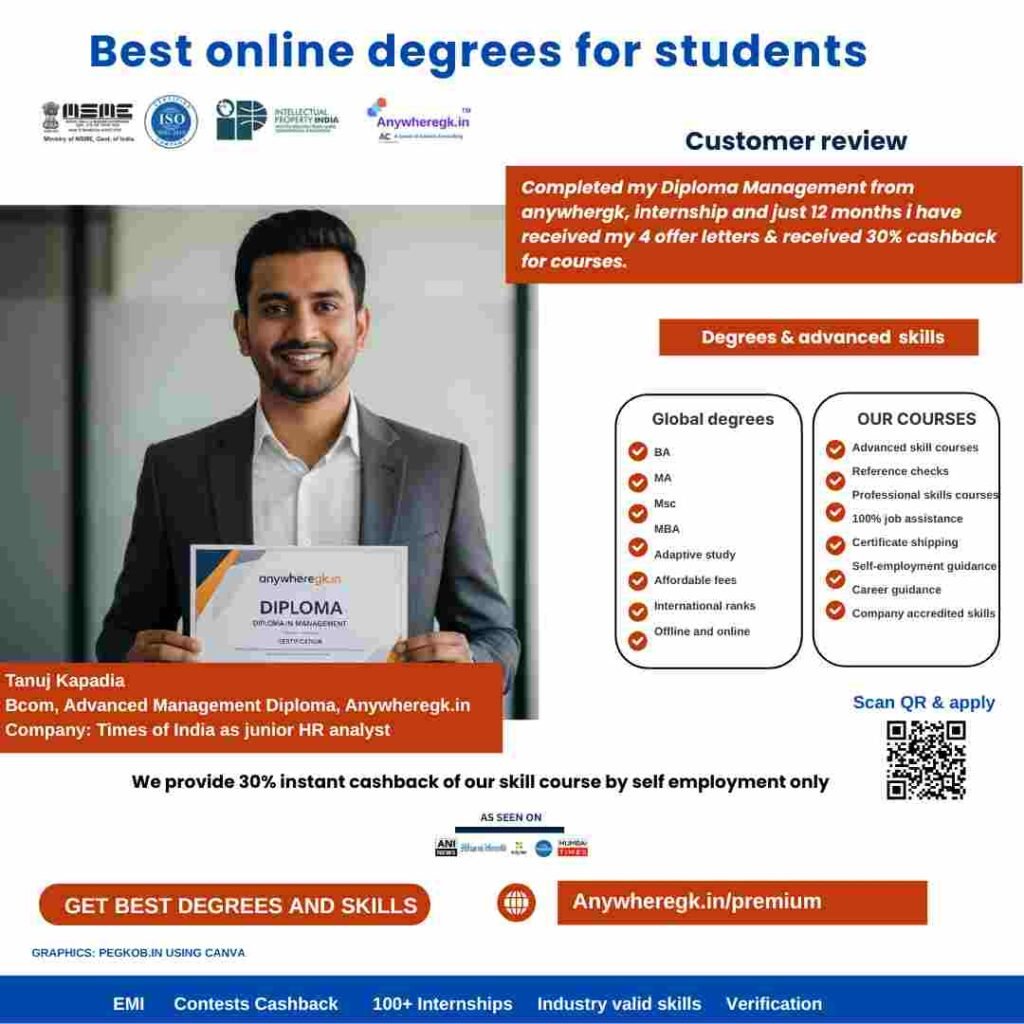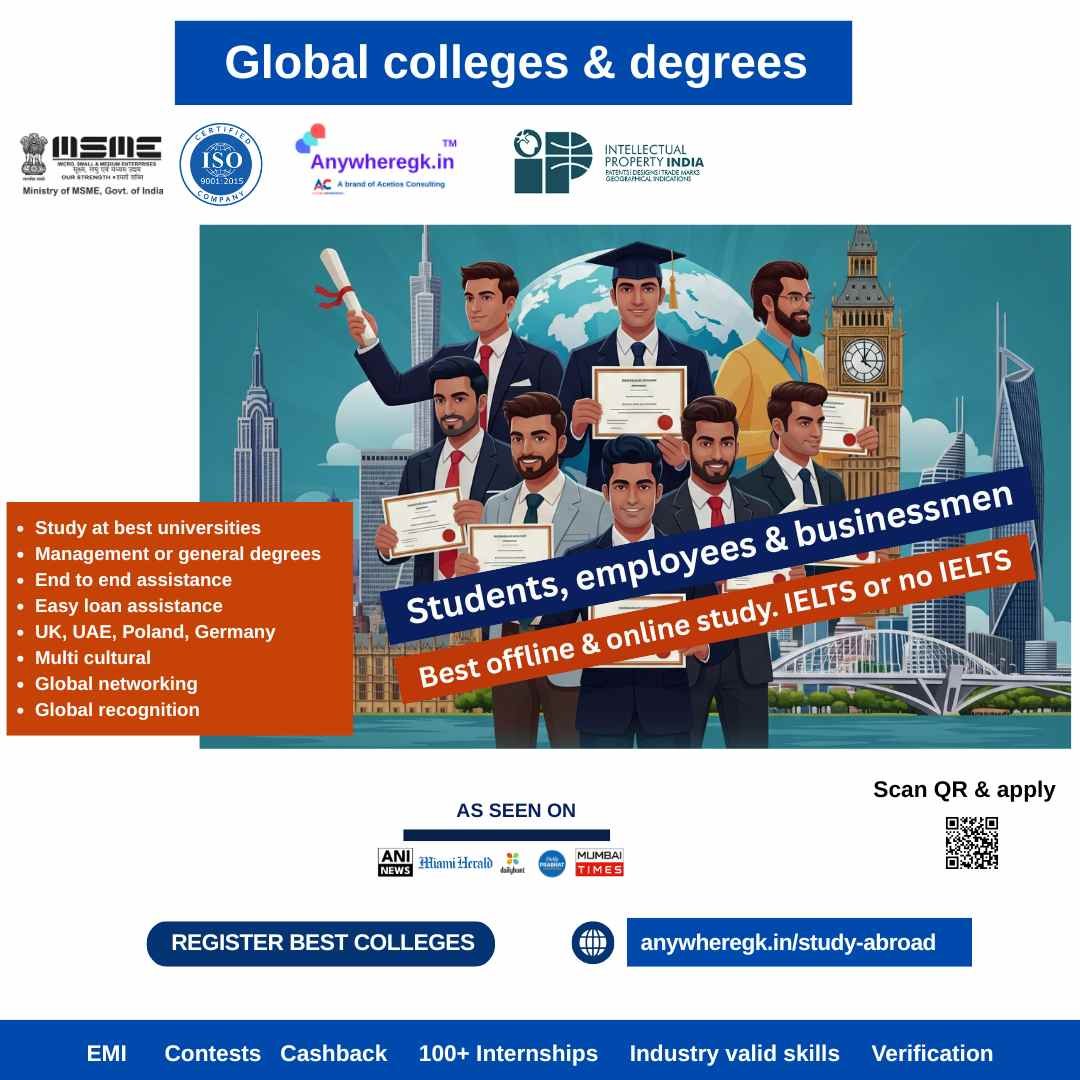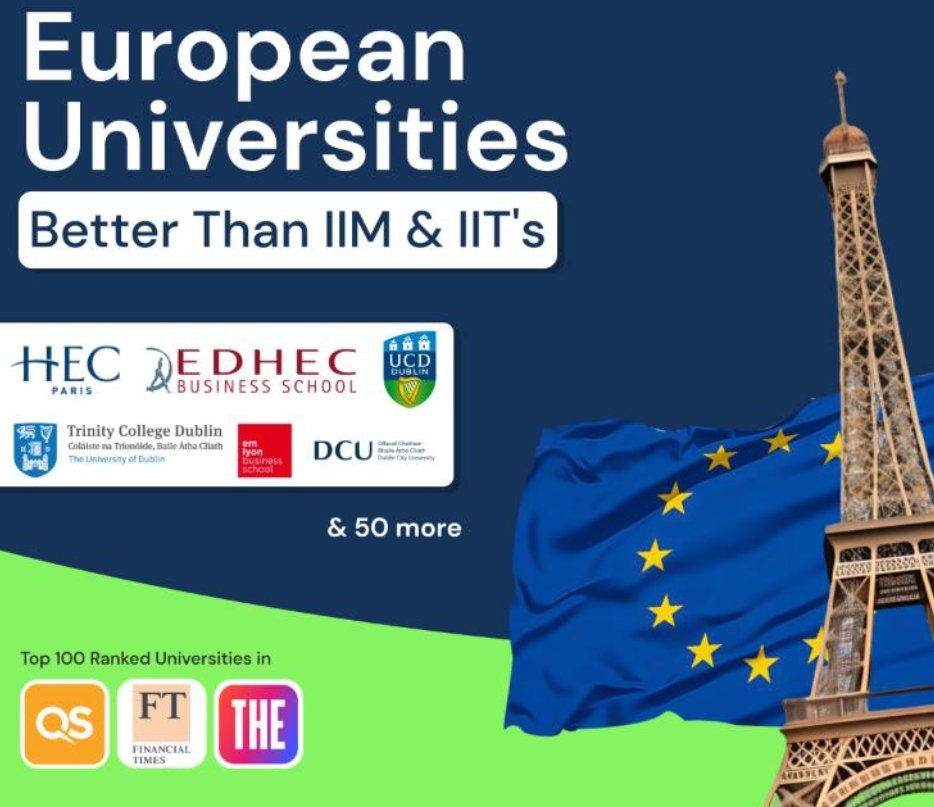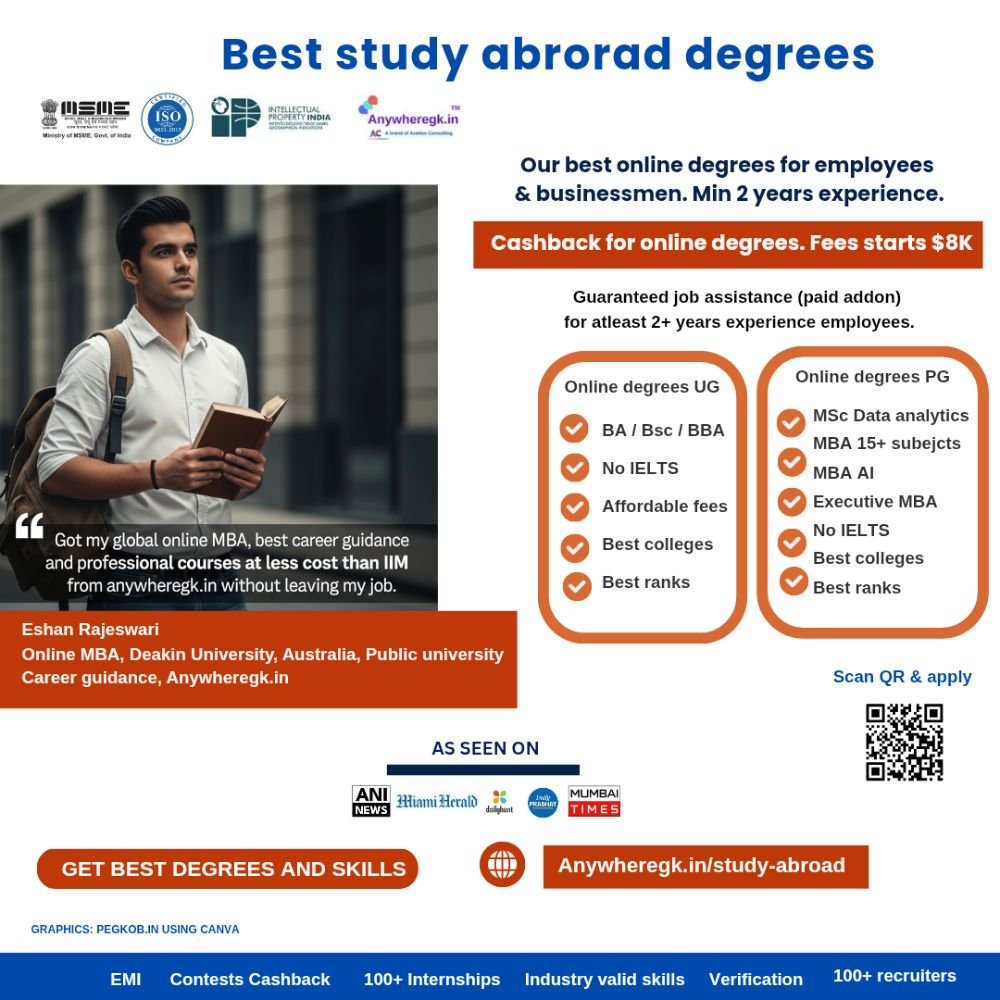Things all Indian students should know before applying to study abroad
Here’s a list of key things Indian students should know before applying to study abroad in the UK, Singapore, Australia, Germany, Russia, and UAE
For UK, Canada, Sweden, Australia, UAE, and US: Above 80% in English ensures easier college or job entry. All non-English countries, local language boosts job chances more than English






Offline & online international courses. Check your email or spam. We will contact in whatsapp
Key Timeline Considerations:
- Summer/Early Fall of Senior Year: This is ideal for most UK, France , Russia, Germany, Australia, Singapore, US universities and many other institutions.
- Fall Intake (September/October): Applications are generally open from January/February to June/July.
- Spring Intake (January/February): Applications may open later in the year for this intake.
- Summer Intake (May/June): Applications may be open earlier in the year for this intake.
- Standardized Tests: Apply for and prepare for any required standardized tests (like the SAT or TOEFL) 3-6 months before the test date.
- Visa Application: Apply for the student visa once your application is accepted, ensuring timely processing.
🇬🇧 United Kingdom
- Top Programs: Business, Engineering, Law, Health, and Arts.
- Intake: September (main), January.
- Tests: IELTS/TOEFL; Some courses require UCAT, GMAT, or GRE.
- Costs: £10,000–£25,000/year (tuition); £9,000–£12,000/year (living).
- Work Rights: 20 hours/week (term); 2 years post-study work visa.
- Visa: Tier 4 (Student visa) – CAS letter, proof of funds, IELTS. To know more click here
🇸🇬 Singapore
- Top Programs: Business, Computing, Engineering.
- Intake: August (main), January (some).
- Tests: IELTS/TOEFL; SAT or ACT for undergrad (NUS/NTU); GRE/GMAT for PG.
- Costs: SGD 12,000–40,000/year (varies with subsidy); affordable public unis.
- Work Rights: Limited; part-time (16 hrs/week) in term.
- Visa: Student Pass; auto-linked with admission.
🇦🇺 Australia
- Top Programs: Engineering, Medicine, Business, IT.
- Intake: February, July.
- Tests: IELTS/TOEFL/PTE; GMAT/GRE for some PG courses.
- Costs: AUD 20,000–45,000/year (tuition); ~AUD 21,000/year (living).
- Work Rights: 24 hrs/week (term); 2–6 years post-study work visa.
- Visa: Subclass 500; need OSHC, GTE statement, proof of funds.
🇩🇪 Germany
- Top Programs: Engineering, Sciences, Management.
- Intake: October (main), April (some).
- Tests: IELTS/TOEFL; TestAS (for undergrad); GRE for some PG.
- Costs: Low/no tuition in public universities; €10,000–€12,000/year living.
- Work Rights: 120 full/240 half days per year; 18 months post-study stay.
- Visa: Student Visa; blocked account (€11,208), admission proof, health insurance.
🇷🇺 Russia
- Top Programs: Medicine, Engineering, Aerospace.
- Intake: September.
- Tests: English proficiency if English-taught; entrance exams or NEET for medicine.
- Costs: $2,000–$6,000/year tuition; low living costs.
- Work Rights: Limited; recent rules allow part-time with study visa.
- Visa: Student visa; admission letter, HIV test, proof of funds.
🇦🇪 United Arab Emirates
- Top Programs: Business, Engineering, IT, Hospitality.
- Intake: September, January.
- Tests: IELTS/TOEFL; SAT for undergrad at some unis.
- Costs: AED 35,000–70,000/year (tuition); AED 25,000–40,000/year (living).
- Work Rights: Limited; permission needed for part-time work.
- Visa: Student visa through university sponsorship.
Here is a comprehensive table of rules for applying for higher education & student visa for Indian students in Bulgaria, Poland, Georgia, Uzbekistan, Malta, Ireland, Netherlands, and France:
| Country | Education Requirements | Language Proficiency | Visa Requirements | Key Notes |
|---|---|---|---|---|
| Bulgaria | 12th pass or bachelor’s degree for PG courses | English (IELTS not always mandatory) | Student visa (D-type); university acceptance letter needed | Affordable tuition; residence permit after arrival |
| Poland | 12th pass (UG), degree (PG); recognized board/university | IELTS 6.0+ or medium of instruction letter | National visa (D); proof of funds, accommodation | Schengen access; work allowed part-time |
| Georgia | 12th pass for UG; NEET mandatory for MBBS | No IELTS; MOI accepted | E-visa or visa on arrival (temporary residence after admission) | Cost-effective MBBS; globally accepted degrees |
| Uzbekistan | 12th pass for UG; NEET for MBBS | No IELTS; English medium accepted | Study visa; admission letter required | Low cost of living and education |
| Malta | 12th or degree; depends on course | IELTS 5.5+ or MOI | Long-stay visa (D); financial proof, health insurance | English-speaking country; job opportunities during and after studies |
| Ireland | 60%+ in previous education | IELTS 6.0+ is mandatory | Study visa; proof of funds (€7,000+), medical insurance | 2-year post-study work visa; top-ranked universities |
| Netherlands | Strong academics; entrance test for some UG/PG programs | IELTS 6.0–6.5 or TOEFL | MVV (Provisional Residence Permit) + residence permit | High employability; Dutch + English instruction |
| France | 12th pass or degree; course-specific requirements | IELTS 6.0+ or French language certificate | Long-stay visa; Campus France interview, funds €7,380+ | Tuition waivers available; Schengen access; language learning support |
MOI: Medium of instruction are English or any other certificates issued by your school or any company.
Cost & Eligibility Comparison Table, now including a direct fee comparison vs India (Tier 1 & Tier 2), based on 2-year program costs, assuming no IELTS/GMAT and MOI (Medium of Instruction) accepted:
MBA Cost, Eligibility & India Comparison
| Country | Eligibility | MOI Accepted? | Entrance/Exam-Free? | Tuition Fees (INR) | Living Cost (INR/year) | Total Cost (2 years) | Compared to India (Tier 2) | Compared to India (Tier 1) | Remarks |
|---|---|---|---|---|---|---|---|---|---|
| 🇮🇳 India (Tier 1) | Bachelor’s + CAT/XAT, high cutoff | ❌ No | ❌ No | ₹10–25 Lakhs | ₹2 Lakhs | ₹12–27 Lakhs | — | — | Top Indian B-schools (IIMs, ISB, etc.) |
| 🇮🇳 India (Tier 2) | Bachelor’s + MAT/CMAT/Own Test | ❌ No | ❌ No | ₹4–10 Lakhs | ₹1.5 Lakhs | ₹6–12 Lakhs | — | Cheaper by ₹6–15 Lakhs | Average placements; easier entry |
| 🇦🇪 UAE | Bachelor’s; work exp preferred, no GMAT | ✅ Yes | ✅ Yes | ₹10–18 Lakhs | ₹5–6 Lakhs | ₹20–30 Lakhs | Higher by ₹8–18 Lakhs | Comparable/slightly higher | Fast visa; Indian community; MOI accepted |
| 🇦🇺 Australia | Bachelor’s + 2–3 yrs experience; MOI accepted in select unis | ✅ Yes (some) | ✅ Yes (some) | ₹18–30 Lakhs | ₹8–12 Lakhs | ₹34–50 Lakhs | Higher by ₹22–38 Lakhs | Higher by ₹8–23 Lakhs | Work+PR options, but expensive |
| 🇫🇷 France | Bachelor’s; work exp preferred, no GMAT | ✅ Yes | ✅ Yes | ₹10–20 Lakhs | ₹6–8 Lakhs | ₹22–36 Lakhs | Higher by ₹10–24 Lakhs | Comparable to higher-end Tier 1 | Scholarships common, job in EU possible |
| 🇩🇪 Germany | Bachelor’s + 1–3 yrs exp; public unis accept MOI selectively | ✅ Yes (some) | ✅ Yes | ₹0.5–6 Lakhs | ₹6–7 Lakhs | ₹13–15 Lakhs | Slightly higher or equal to Tier 2 | Cheaper by ₹10+ Lakhs | Low tuition; part-time work & post-study stay allowed |
| 🇵🇱 Poland | Bachelor’s; no entrance exam; MOI widely accepted | ✅ Yes | ✅ Yes | ₹4–8 Lakhs | ₹4–6 Lakhs | ₹12–16 Lakhs | Comparable to Tier 2 or slightly more | Cheaper by ₹5–12 Lakhs | Budget-friendly EU; low living cost; English-taught |
Poland & Germany are closest in cost to India (Tier 2), and in some cases, even cheaper than Tier 1
University Recognition Around the World
In India, the University Grants Commission (UGC) is the central authority that regulates and recognizes universities. However, in most developed countries, universities operate more autonomously. They are typically licensed or chartered by national or regional authorities, and then recognized by independent accreditation bodies. These institutions can offer degrees without constant central oversight, unlike India’s heavily regulated model. Recognition is often voluntary but essential for credibility and student mobility. Here’s how some countries manage it:
Recognition of Universities in Different Countries
| Country | Recognizing / Licensing Body | Notes |
|---|---|---|
| USA | Department of Education (DoE) + Regional/National Accreditors | Accreditation is voluntary but required for federal aid and credibility |
| Germany | State Ministries of Education (Länder) | Universities are state-regulated and autonomous |
| UK | OfS (England), QAA (Quality Assurance Agency), Privy Council | Universities are granted degree-awarding powers by the government |
| Poland | Ministry of Education and Science | Accreditation via PKA (Polish Accreditation Committee) |
| France | Ministry of Higher Education | Public universities follow national framework; Grandes Écoles separate |
| Russia | Ministry of Science and Higher Education | Licenses and accreditation provided at federal level |
| UAE | Ministry of Education + CAA (Commission for Academic Accreditation) | Mandatory licensing for local and branch campuses |
| Antigua | National Accreditation Board | Oversees recognition of universities including offshore campuses |
In these countries, accreditation is quality assurance, not just permission to operate. Universities can seek multiple recognitions (regional, global, or sector-specific) without needing a central body like UGC to approve each action. This fosters competition, diversity in education, and global integration—something India’s rigid system still struggles with.
How to study MBBS & other healthcare courses in our best colleges?
- Annual scholarships available
- Approved by: World Health Organization (WHO), Educational Commission for Foreign Medical Graduates (ECFMG), World Federation for Medical Education (WFME)
- Curriculum as per National Medical Commission (NMC) guidelines
- Coaching for United States Medical Licensing Examination (USMLE), Professional and Linguistic Assessments Board (PLAB), and Foreign Medical Graduate Examination (FMGE)
- VIP hostel facilities
- Nutritious meals provided three times daily
- Affordable tuition fees starting USD 60K
- World-class medical education
LIMITED SEATS AVAILABLE
Why study MBBS abroad through Anywheregk.in?
Medical universities listed by NMC and WHO
- Rich cultural diversity and safe, student-friendly environment
- MBBS degree recognized globally
- Universities accredited by WHO, UNESCO, and NMC
- Globally standardized curriculum
- Affordable tuition and living costs
- English as the medium of instruction
- No language tests or hidden capitation fees
- 100% visa approval rate for Indian students
- Easy admission process
- Fully equipped labs, classrooms, and libraries
- High-quality yet cost-effective learning
- International exposure and career opportunities
Detailed counseling for all indian students to study in UK
The United Kingdom stands tall as a beacon of high-quality education, making it an attractive destination for international students, including those from India. With its great universities, diverse cultural environment, and promising career opportunities, the UK offers a holistic experience for those seeking to broaden their educational horizons.
Types of Student Visas
The UK offers three main types of student visas, each tailored to specific needs:
Student visa
- Designed for students aged 18 or above, this visa is ideal for those enrolled in courses longer than six months
- Benefits include part-time work during term time and full-time employment during holidays
- Cost: £490 (approximately INR 50,000)
Short-term study visa
- Perfect for courses under 12 months, such as English language programmes.
- Cost: £200 (approximately INR 20,000)
Eligibility Criteria for UK Student Visas
Get our 100% guaranteed selection & visa approval:
- Start Early: Apply well in advance to avoid delays. Select colleges & also apply before 8 months of college admission. Eg. If you are in school please apply for your colleges.
- Meet All Requirements: Review all visa and documentation requirements carefully
- Choose the Correct Visa Type: Select the visa that matches your course duration
- Ensure Financial Stability: Display proof of tuition and living costs
- Show Genuine Intent: Clearly communicate your study plans and intent in the UK
- Biometric Appointment: Attend the mandatory appointment for fingerprinting and a photograph
- Accommodation and Healthcare: Confirm accommodation arrangements and healthcare coverage as required
- Review and Stay Updated: Check documents for accuracy and stay informed on any process changes
To qualify for a UK student visa, Indian students must meet essential criteria:
- Letter of Acceptance – A Confirmation of Acceptance for Studies (CAS) from a recognised UK institution is required, proving that the applicant has secured a place
- Financial Capacity – Applicants must demonstrate sufficient funds to cover tuition fees and living expenses. The minimum amounts required are based on location. Inside London: £1,334 per month (up to 9 months). Outside London: £1,023 per month (up to 9 months)
- Passport and Language Proficiency – A valid passport and evidence of English proficiency at CEFR level B2 or above are mandatory
- Age Requirements and Health Clearance – Age requirements differ based on the visa type, and a tuberculosis test is required for all applicants
Required Documents for UK Student Visa Applications
UK student visa applications use a points-based system (Student Route), with specific documentation required for eligibility:
- Valid passport and previous visas
- Passport-sized coloured photos
- Confirmation of Acceptance for Studies (CAS)
- Proof of funds: £1,023 per month if outside London or £1,334 if studying within London (up to 9 months)
- Health insurance and evidence of accommodation arrangements
- English language proficiency proof
- Visa fee payment confirmation
- Application form and travel tickets
Study Abroad Guidance:
Over 1.3 million Indian students study abroad yearly (Source: MEA, 2024). Foreign education offers global exposure, advanced skills, and career pathways in top economies. It builds credibility for self-employment and international jobs.
- BA: Study arts abroad to explore global culture, journalism, languages, and psychology. Ideal for careers in media, NGOs, education, or content creation.
- BSc: Science degrees abroad offer modern labs, research roles, and biotech careers. Suitable for Indian students aiming for healthcare, pharma, or higher education globally.
- BCom: Learn international commerce, taxation, and finance. Prepares for global jobs, startups, or ACCA/CPA certifications.
- BBA: Management-focused programs enhance leadership, marketing, and entrepreneurship. Leads to jobs in MNCs, family business or startups.
- MBA: Study business strategy, data, and global markets. Opens doors to executive roles and cross-border consulting or businesses.
- Nursing: High demand in UK, Canada, Australia. Great for permanent residency, high pay, and secure jobs.
- Paramedical: Courses in radiology, OT, lab tech have global scope. Job-ready within 1–2 years.
- MBBS: Cost-effective in countries like Russia, Philippines. Global license options and hospital placements
Here’s a shortened and tabulated version of your content with a focus on ROI and Anywheregk.in‘s value additions:
Study Abroad ROI for Indian Students (Simplified Overview)
| Country | Avg. Fees (INR) | Living (Monthly) | Earnings (INR/hr) | Post-Study Visa | Avg. Salary (INR/Year) | High-Demand Sectors |
|---|---|---|---|---|---|---|
| USA | ₹20L – ₹50L+ | ₹1.2L – ₹2L | ₹800 – ₹1,600 | 1–3 yrs (STEM ext.) | ₹80L – ₹1.5 Cr+ | Tech, Healthcare, Finance |
| UK | ₹10L – ₹25L | ₹1L – ₹1.8L | ₹1,000 – ₹1,500 | 2–3 yrs | ₹50L – ₹90L+ | Finance, Business, Cybersecurity |
| Canada | ₹10L – ₹30L | ₹50K – ₹68K | ₹800 – ₹1,200 | Up to 3 yrs | ₹55L – ₹1 Cr+ | Data, Engineering, IT |
| Australia | ₹11.5L – ₹25.5L | ₹70K – ₹1.6L | ₹1,000 – ₹1,500 | 2–5 yrs | ₹55L – ₹90L+ | Healthcare, IT, Engineering |
| Germany | ₹0 – ₹3.4L (Public) | ₹70K – ₹1L | ₹700 – ₹1,200 | 18 months | ₹55L – ₹80L+ | Engineering, Automotive, AI |
| UAE | ₹9L – ₹25L | ₹70K – ₹1.5L | ₹800 – ₹1,500 | Up to 2 yrs | ₹40L – ₹1.2 Cr+ | Finance, IT, Real Estate, Tourism |
| Saudi Arabia | ₹0 – ₹12.5L | ₹40K – ₹1L | Not Allowed | Work Visa Required | ₹27L – ₹50L+ | Oil, Tech, Construction, Health |
| Qatar | ₹2L – ₹6.5L | ₹35K – ₹1L | ₹700 – ₹1,200 | Work Visa Required | ₹25L – ₹60L+ | Energy, Finance, F&B, Tech |
Why Study Abroad Offers Higher ROI Than India
- Higher salaries even in entry-level jobs.
- Practical skill focus, global work culture.
- Better customer mindset in developed economies (No freebie mentality).
- Strong GDP per capita = Stronger consumer markets.
Anywheregk.in: Study Abroad Support Summary
| Service Area | Details |
|---|---|
| Eligibility-based Matching | 100% selection guidance per student’s profile (admission depends on college) |
| College Discovery | AI-recommendations, brochures, fees, career info, ratings |
| Application Help | Online document submission and form support |
| Career Counseling | Aligning study plans with job market trends |
| Skill Development | Advanced career skills + internship support (paid/unpaid) |
| Job Assistance | 100% support (no job guarantee); also self-employment options |
| Loan Help | Assistance with securing educational loans |
| Incentives | Cashback post-admission (T&C apply) |
Conclusion: Studying abroad adds career value, global exposure, and builds confidence for jobs or businesses.
FAQ:
Here are some frequently asked questions about studying abroad, along with information on applying to the US, UK, and UAE for school students:
Study Abroad FAQs
- The four main types of college degrees are associate, bachelor’s, master’s, and doctoral.
- Eligibility criteria for scholarships, especially in countries like Australia, vary by program, institution, and level of study, but general academic requirements often apply.
- A Statement of Purpose (SOP) is a crucial part of visa applications, where candidates detail their background, intentions, and qualifications.
- In Canada, international students can obtain PGWPs, which are open work permits allowing them to work anywhere in Canada after completing their studies.
How School Students Can Apply (US, UK, & UAE)
For school students aiming for undergraduate studies:
- US: Applications are typically via Common App or university portals. Exams: SAT/ACT and English proficiency (TOEFL/IELTS/PTE). Time: Apply 6-12 months before intake (Fall: August-September). Fees: Tuition ranges from $20,000-$50,000+ annually; application fees vary ($60-$90 for SAT/ACT). Best Degrees: Business, Computer Science, Engineering, Health Professions.
- UK: Apply through UCAS. Exams: English proficiency (IELTS/TOEFL/PTE/Duolingo); some specialized courses may require additional tests. Time: UCAS deadlines are often January (most courses) or October (Oxford/Cambridge/Medicine). Fees: Tuition is £10,000-£20,000+ annually; application fees apply. Best Degrees: Business, Computer Science, Engineering, Medicine, Law.
- UAE: Apply directly to universities. Exams: English proficiency (IELTS/TOEFL/PTE). Some universities may require SAT/ACT for certain programs. Time: Admissions typically in January/February or September intakes. Fees: Annual tuition is AED 37,500-70,000+ (UG); visa fees apply. Best Degrees: Business & Management, Engineering, Architecture, Tourism.



